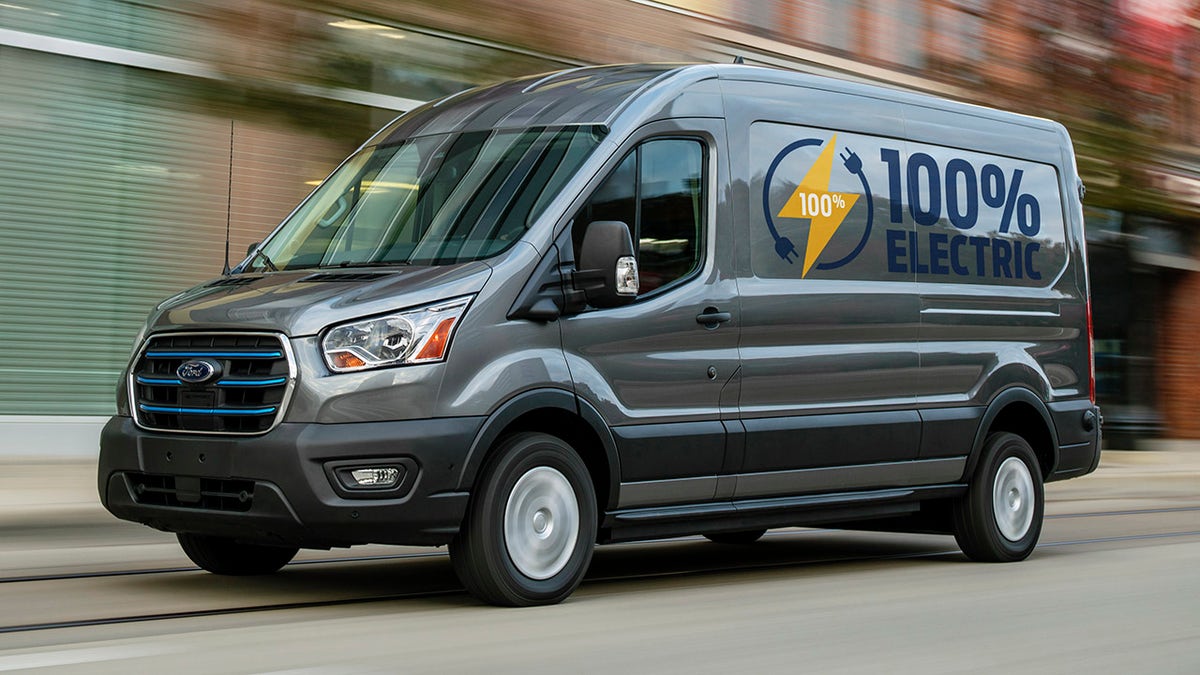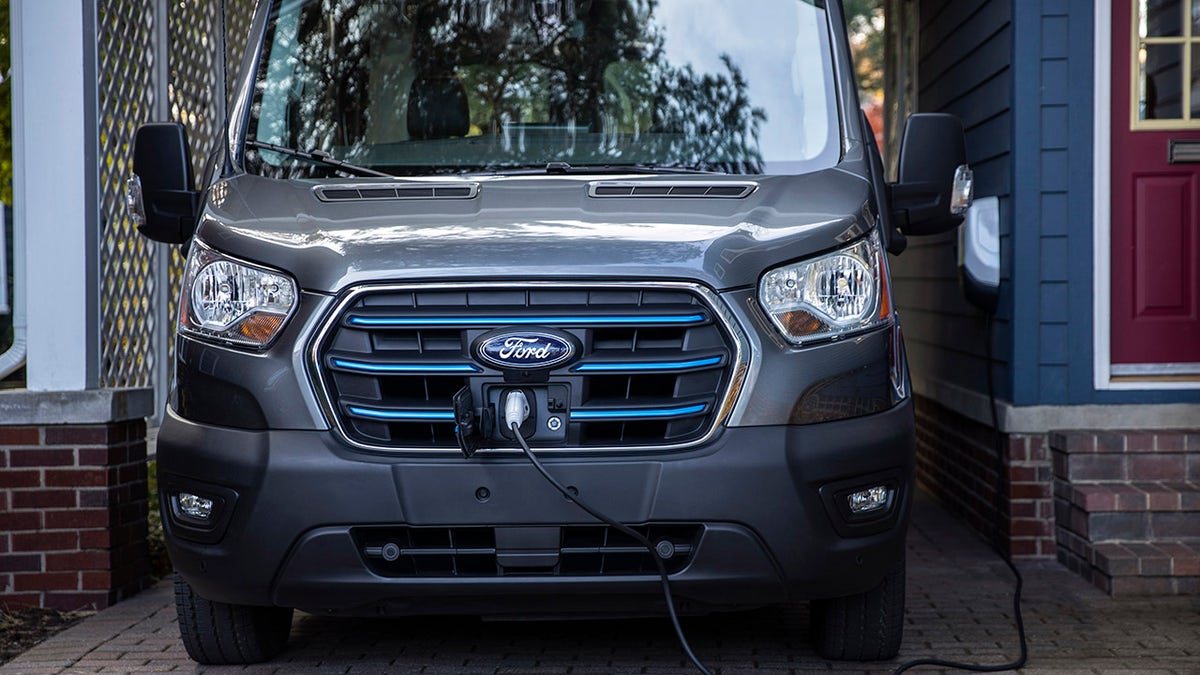Seven-motor Ford Mustang Mach-E is an electric thrill ride
The 1,400-horsepower electric Mustang Mach-E 1400 was built to get people excited about Ford's upcoming electric cars.
The Ford E-Transit won’t turn heads like the Mustang Mach-E, but the battery-powered commercial van will be an important part of the automaker’s commercial business when it goes on sale late next year.

(Ford)
The all-electric model will be built on the same platform as the internal-combustion engine versions of America’s best-selling commercial van and looks just like them. Ford will offer it in eight configurations, including three lengths, three roof heights and both chassis cab and cutaway models, but a passenger version is not yet in the mix.
Ford says the E-Transit will start “under” $45,000 and that the smallest, low-roof model will have a range of 126 miles per charge. Its battery pack has a useable capacity of 67-kilowatt-hours and can recoup 40 miles of range in 15 minutes at a DC fast-charging station, while a fill-up takes around 8-12 hours on a 240-volt charger. Ford's global marketing director of electric trucks and commercial vehicles, Yaro Hetman, said that the company's internal studies found the average daily distance a commercial van travels in the U.S. is 74 miles.

(Ford)
The rear-wheel-drive E-Transit is expected to be rated at 266 hp and 317 lb-ft torque with a targeted cargo capacity of 3,800 pounds for the enclosed models. It will come standard with automatic emergency brakes and lane-keeping assist and will be offered with a built-in 2.4-kilowatt generator to provide power for tools, lights and other equipment.
ELECTRIC FORD F-150 WILL BE THE MOST-POWERFUL MODEL
The E-Transit will qualify for a $7,500 federal tax credit -- if Ford hasn’t reached the threshold of 200,000 plug-in vehicle sales by that time – along with various state incentives that could bring the cost below the gasoline-powered Transit’s current starting price of $36,205. Ford hasn't released energy efficiency ratings but projects that the maintenance costs will be as much as 40% lower than internal combustion engine models over the life of the vehicle.
